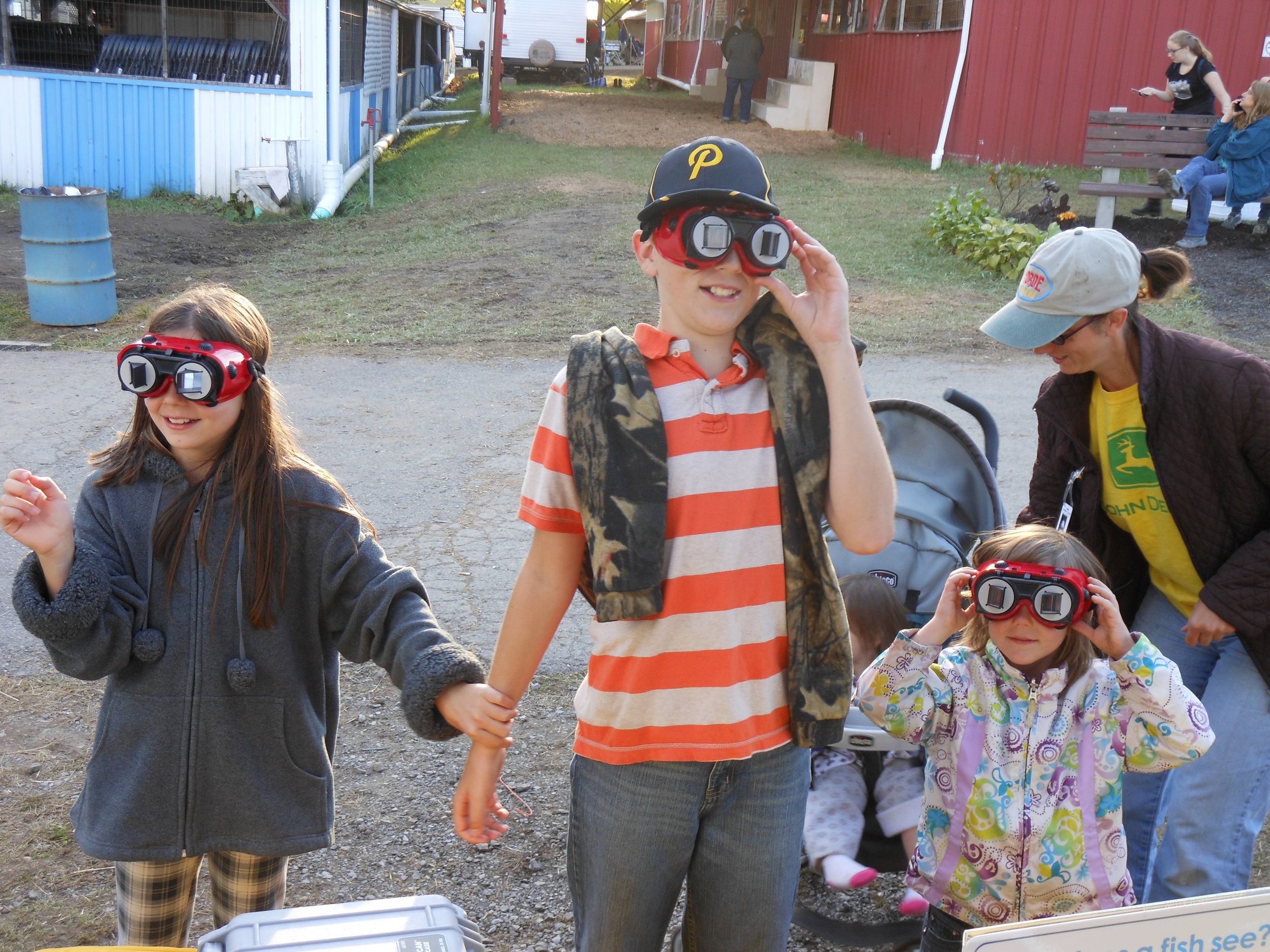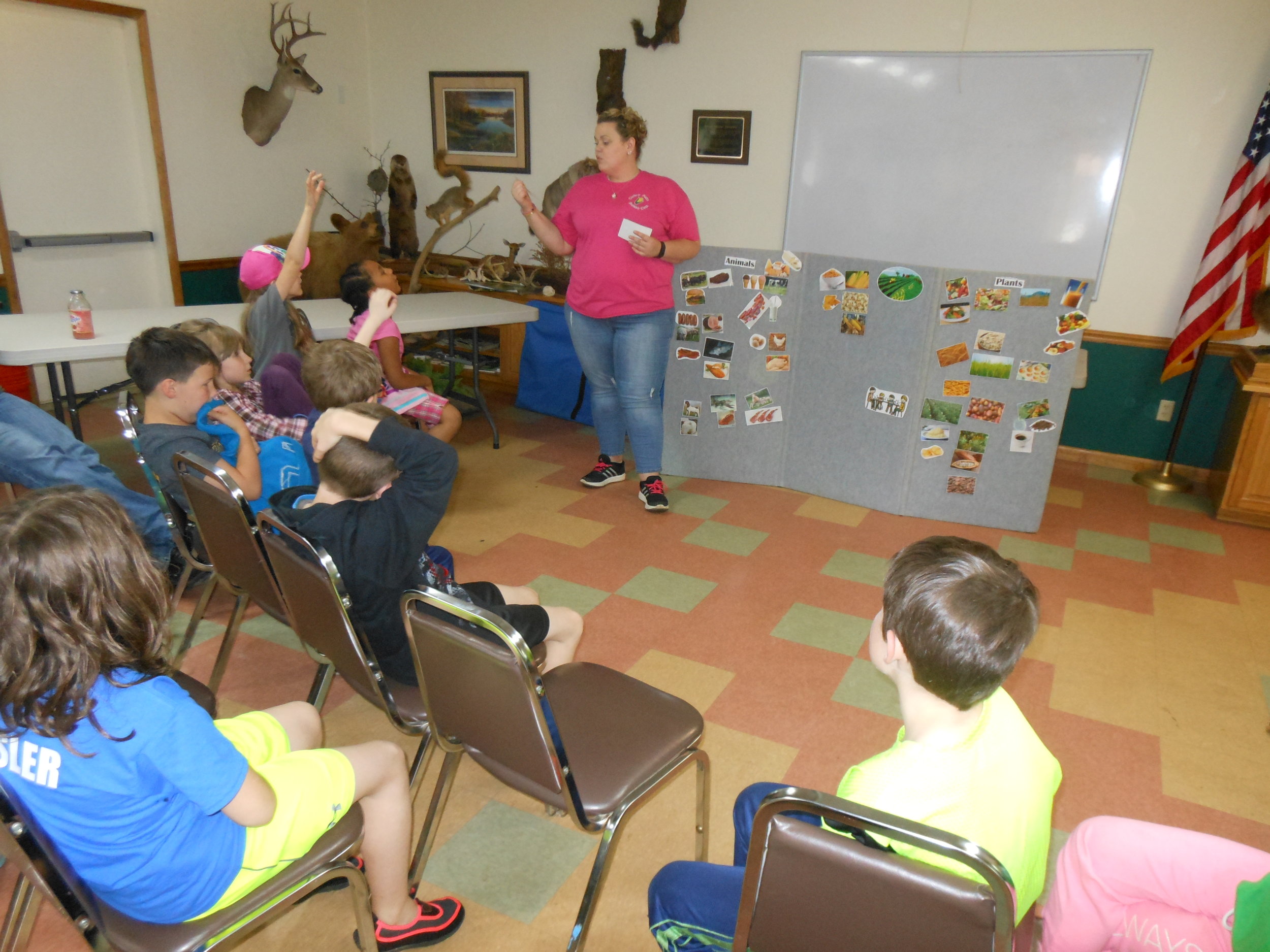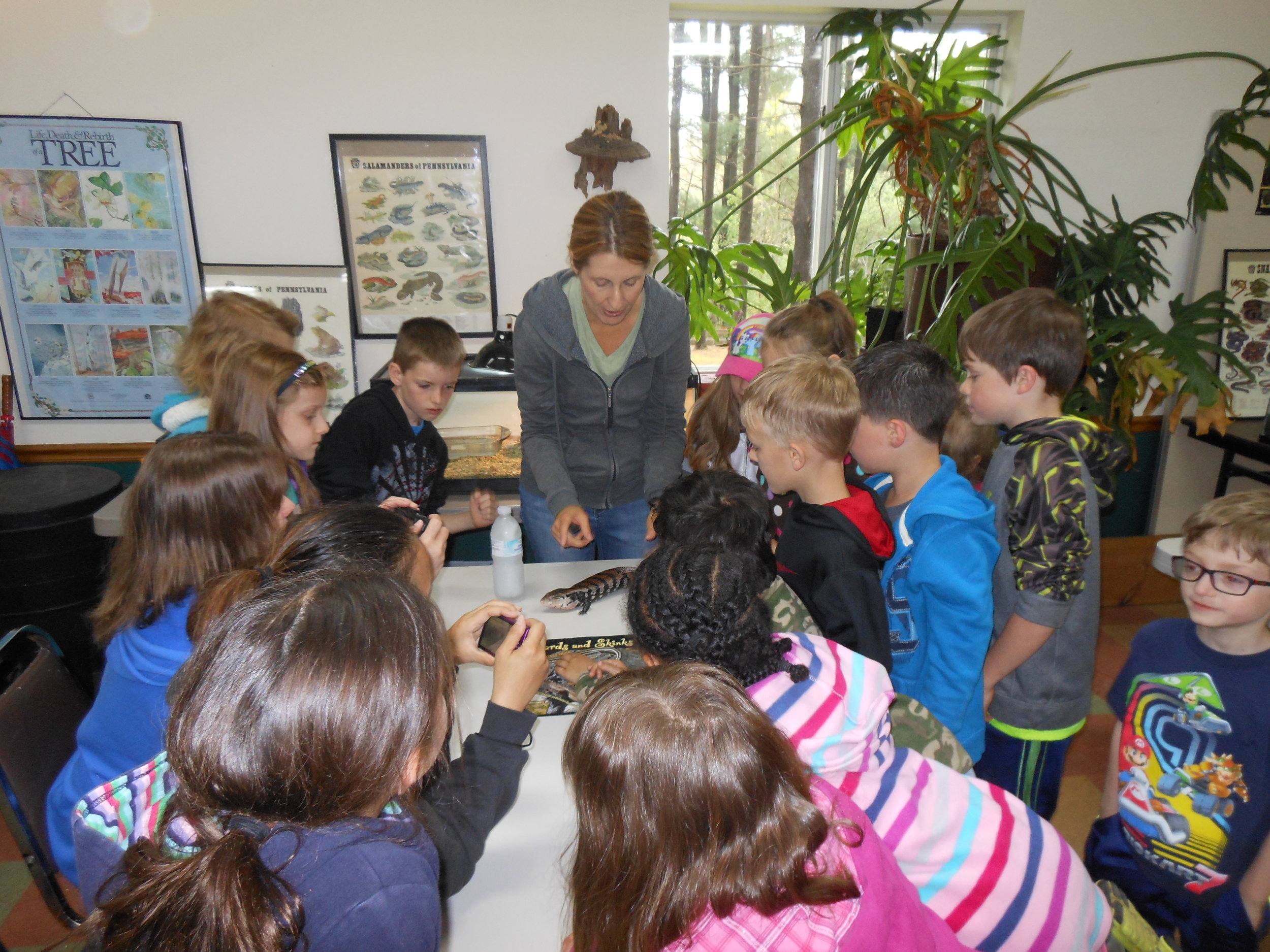Child education
why should we care about environmental education?
The goal of the environmental education program is to create opportunities for children and adults to learn about nature and conservation. Hands-on, interactive programs are designed to inspire appreciation for the environment and foster a sense of stewardship for our natural resources. Programs are offered to the general public, preschoolers, schools, scouts, churches, senior citizen groups, special education populations and other groups. The Conservation District offers many of our programs at Disaster’s Edge Environmental Education Center located in the 1889 Park in St. Michael. During the summer, the district partners with other agencies such as the PA Game Commission, PA Fish and Boat Commission to hold Family Education Days at Duman Lake County Park and the 1889 Park. The district also offers Nature Discovery through Kayaking Programs during the summer at several county reservoirs.
While we have several pre-designed programs, we can always customize a program for your program!
prices
Prices for child education programs at Disaster’s Edge: $1 per student
Prices for child education programs at other location (schools, libraries, etc.): $2 per student
child education programs:
bugs
What’s the Buzz about Mosquitoes? - Students will learn about the life cycle of the Mosquito and meet with an expert in the control of these pesky summertime pests.
Amazing Monarchs –Learners will hear about the amazing journey that some Monarch Butterflies make, and if the season is right, students may even have an opportunity to tag Monarch Butterflies for an ongoing research study.
wings
Batty about Bats – Our educators will help dispel some of the myths about bats. Students will get to see preserved bats and learn about conservation efforts to help bat species which are endangered.
Birds of a Feather– We’ll investigate bird habitats, adaptations, and the mysteries of migration.
water
What’s In Your Water? Students get to answer this question using real water sampling and test kits, plus learn about the importance of our limited supply of clean water.
H2Olympics— Water is the universal solvent because of its unique chemical nature. In this Project Wet program upper elementary/middle school students see signs of water’s adhesive and cohesive properties and how life depends on these qualities. This curriculum allows them to compete in a Water Olympics to investigate the two properties of water and how water molecules can work together to defy gravity. Using water, pennies and other household items, the olympic events included: Pole Vaulting, The Balance Beam, Backstroke and the Slalom. Students teamed up to get the highest score and tried to break personal records.
The Incredible Journey—This activity was developed through the new Project Wet Curriculum to help younger students understand the journey that water takes in its movement through the water cycle. Students discuss what they understand about water and terms such as condensation, evaporation, precipitation to name a few. They then spend time simulating the water cycle by rolling a cube and moving through different stations to create a water bracelet. Once the bracelet is complete, the students follow their bead colors on a map that shows where their water traveled.
amphibians & Reptiles
Wetland Ecology—Students tour a local wetland as they learn about the characteristics and function of wetlands and the important role they play for wildlife and humans.
Amphibians & Reptiles – Students will be introduced to the life cycle of local amphibians and reptiles; and learn how they survive the long cold winters in Pennsylvania. Live animals are featured.
Seeds & Frogs—Students investigate the life cycles of plants and animals, recycle a plastic bottle to create a miniature terrarium, and observe the various stages of tadpole development
earth
Rock and Roll Geology – Our Geologist will introduce students to the living earth through a discussion on earth quakes and volcanoes. Students will then study various Pennsylvania rock formations and get to see some amazing fossil and mineral samples. This program is especially good for scout groups looking to fulfill the requirements for the Geology badge.
Go Green with Trees—Students learn the effects of trees on the ecosystem, learn how to identify tree species, and determine the stage of succession of a woodland or forest.
Here’s a fun website about Conservation suggested by Ms. Fuentes Elementary Students!
Jamella, Katie, Cody, and Jesika
"Outdoor Play: Learn About Conservation!"
https://www.playgroundequipment.com/outdoor-play-learn-about-conservation/
If you are interested or have any questions about any educational programs please contact the District at 814-472-2120
All programs adhere to Pennsylvania Academic Standards for Environment and Ecology. Please allow 2 to 3 weeks advanced notice for all programs.





